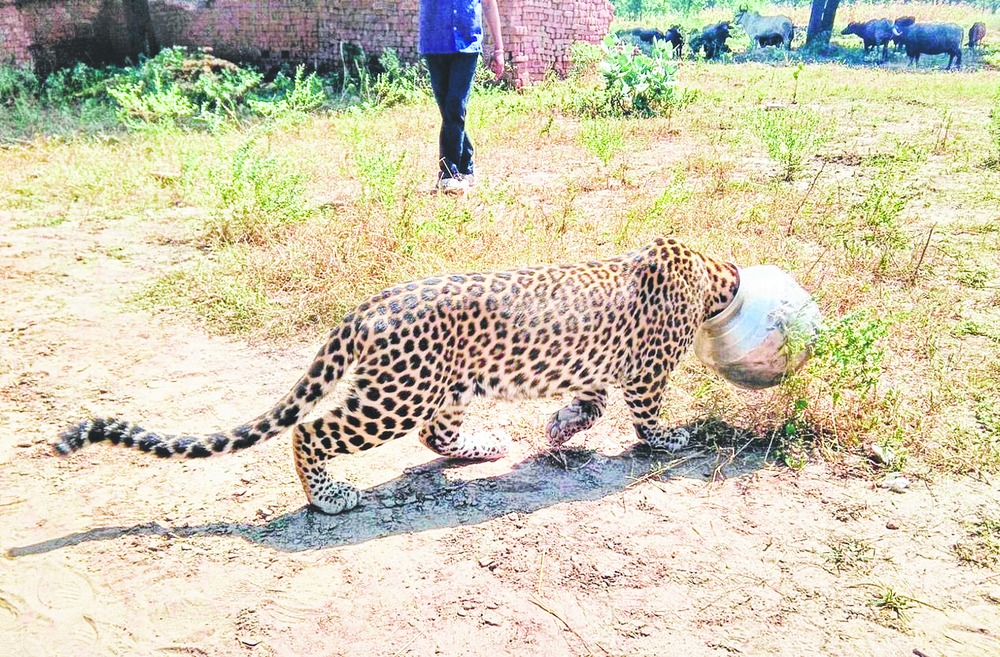
Jaipur, Sept. 30: A leopard's head got stuck in a steel utensil when the thirsty animal craned inside in the hope of finding water and had to wait for almost 12 hours before foresters ended its ordeal.
The three-year-old male had probably ventured into fields near Sadulkheda village in Rajsamand district last night when it spotted the steel pot lying abandoned, district forest officer Kapil Chandrawal said. It probably thought of taking a sip but ended up with its head stuck, Chandrawal added.
The forest office received information only around 10.30 this morning from villagers who had flocked to the site, drawn by the leopard's cries and the sight of it beating about helplessly trying to pull its neck out, Chandrawal said.
Although a crowd had gathered around the field, none dared help the leopard - a powerful animal belonging to the big cat family - for fear of being attacked once it was rescued, other officials said. It was only after the animal gave up tired that the villagers informed the forest department.
Chandrawal said his team took the leopard to their office in nearby Rajsamand town, put it an enclosure and tranquilised it, after which vets yanked the utensil off its head. "The vital parameters of the leopard are fine. It is being monitored and will be released into the forest," he said.
Other forest officials could not recall such an incident in recent memory in the area where leopards are often sighted as it is only 20km from the Kumbhalgarh sanctuary.
Also, the pocket is a marble zone and traders dump the stone waste that have formed small hillocks, some like a cave. Chandrawal said the leopards often take refuge in these caves.
The Rajasthan government has identified Sumerpur, in nearby Pali district, as a conservation reserve for panthers, including leopards. The area, adjoining the Kumbhalgarh sanctuary and home to a thriving population of such animals, will soon figure among the state's wildlife destinations.
The rugged terrain with sparse vegetation provides a suitable natural habitat for big felines.
The nearby Jawai dam and a few perennial springs provide them water, forest officials said.










